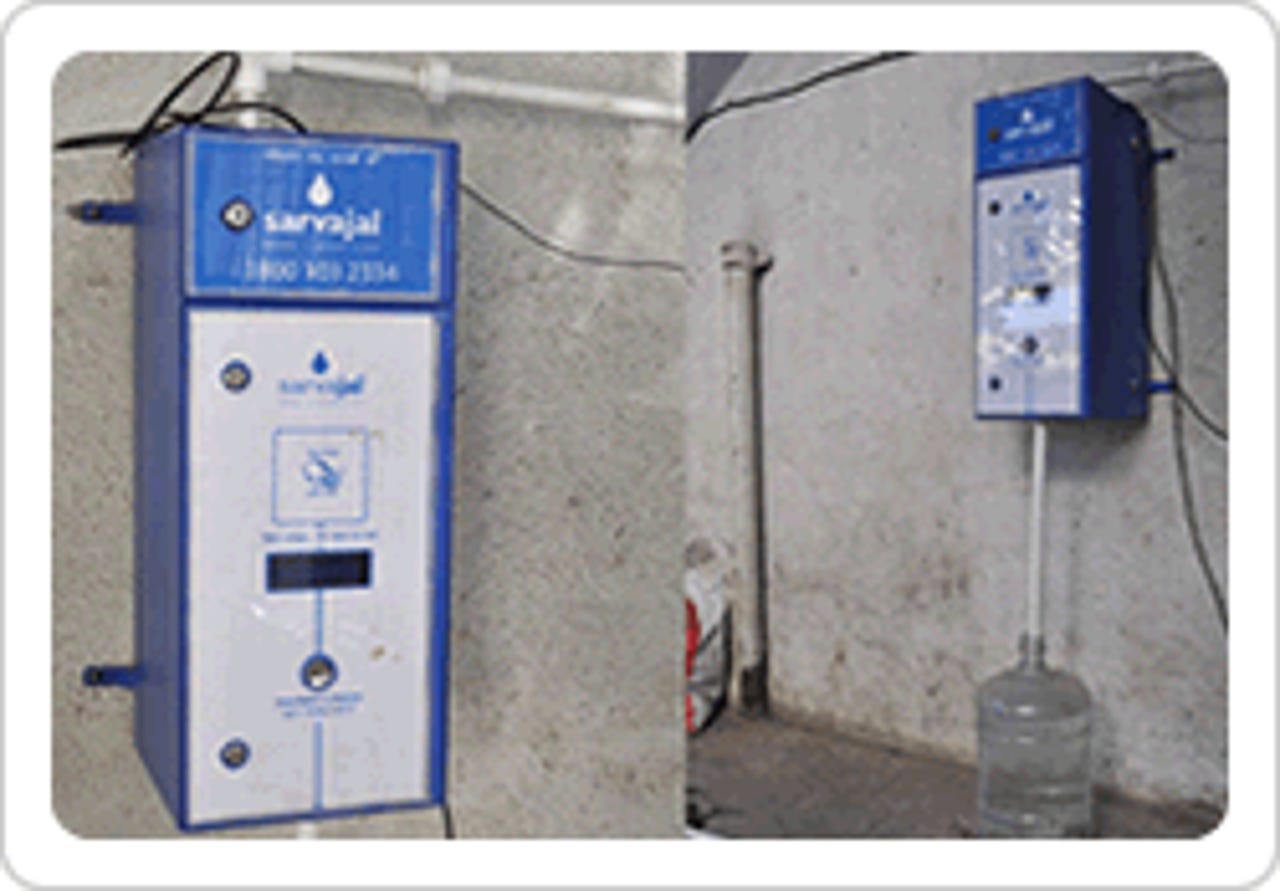India's solar-powered "water ATMs"


Anand Shah, CEO of Sarvajal, has built a franchised network of water ATMs that’s serving 110,000 rural customers living in “the last mile” -- the last place retail folks wanted to go -- for the price of less than $3 per month per family.
The ATMs are supplied with water from larger villages where Sarvajal has built filtration centers operated by local franchisees. Customers swipe a prepaid smart card to collect their water. But these cloud-managed ATMs do more than just dispense water, IEEE Spectrum explains:
They leverage the prepaid model of cellphones on the business side and use mobile technology to enable real-time monitoring with the ATMs' sensors. That allows Sarvajal to track water quality, see what times people draw upon their water supply, and quickly fix any problems that come up.
A franchisee would pay in advance for, say, 100,000 liters of water a month. That would automatically trigger a refill to the machine.
So why franchisees? “To avoid political conflict,” Shah tells Yale Environment 360. “If villagers were buying the water filtration service rather than the water itself from their neighbor or nephew, it was a lot less politically risky than from some big company.”
Now, the ATM franchise is expanding from rural villages to urban slums -- where women and girls typically spend hours waiting for tanker trucks to deliver fresh water. But the move comes with challenges, such as dealing with competitors and trying to convince the local government that its authority in distributing water isn’t being threatened.
Sarvajal needs about 800 franchisees to break even, according to Shah, though it does make money for the franchisees. “Every one of our franchisees is earning more than they would if they were doing a labor job nearby,” he adds.
[Yale Environment 360 via IEEE Spectrum]
Image: Sarvajal
This post was originally published on Smartplanet.com